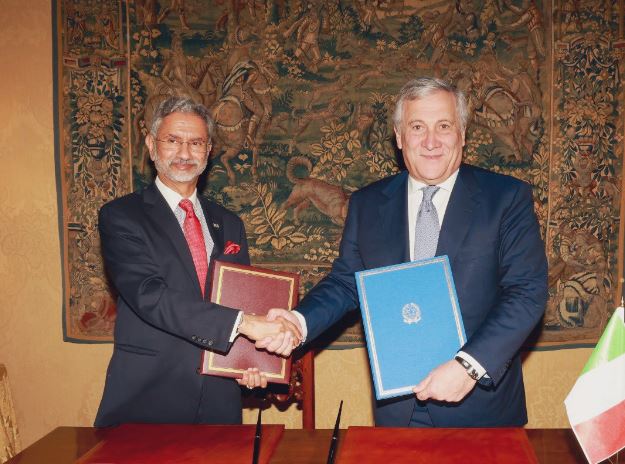New Delhi: The Union Cabinet Wednesday granted ex-post facto approval to sign and ratify the Migration and Mobility Agreement with Italy that allows Indian students temporary residence in the European nation for up to one year after studies to gather professional experience.
The agreement was signed November 2 by External Affairs Minister S Jaishankar and Italian Foreign Minister Antonio Tajani.
It seeks to enhance people-to-people contacts, foster mobility of students, skilled workers, business people, and young professionals, and strengthen cooperation on issues related to irregular migration between the two sides.
It also locks in the current Italian visa regime, including mechanisms for post-study opportunities, internships, professional training assuring an advantage for India under the existing labour mobility pathways under the Flows Decree, an official statement said.
The agreement allows Indian students wishing to gather initial professional experience, after completing academic/vocational training in Italy a temporary residence in Italy for up to 12 months.
Italy has listed provisions related to professional training, extracurricular internships, and curricular internships that allow Indian students/trainees to gain experience in Italian skill/training standards.
For workers, Italy has reserved a quota of 5,000, 6,000, and 7,000 non-seasonal Indian workers for 2023, 2024, and 2025 under the current Flows Decree.
Additionally, the Italian side has reserved a quota of 3,000, 4,000, and 5,000 seasonal Indian workers for 2023, 2024, and 2025 under current Flows Decree.
The agreement also formalises joint working on furthering mobility pathways between India and Italy through agreements on Youth Mobility and Facilitation of Recruitment of Indian-qualified professionals in the healthcare and medical services sectors.
Cooperation between the two parties in fight against irregular migration has also been formalised through the agreement.
The agreement provides a formal mechanism for its monitoring through a joint working group which would meet periodically, in virtual or physical mode as convenient, and oversee its implementation.
PTI
